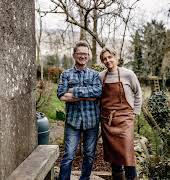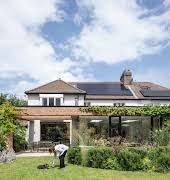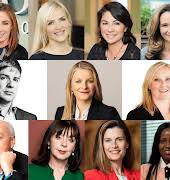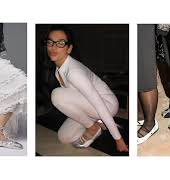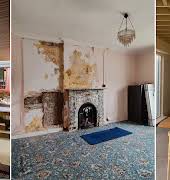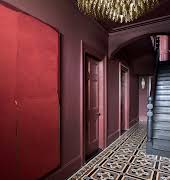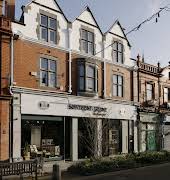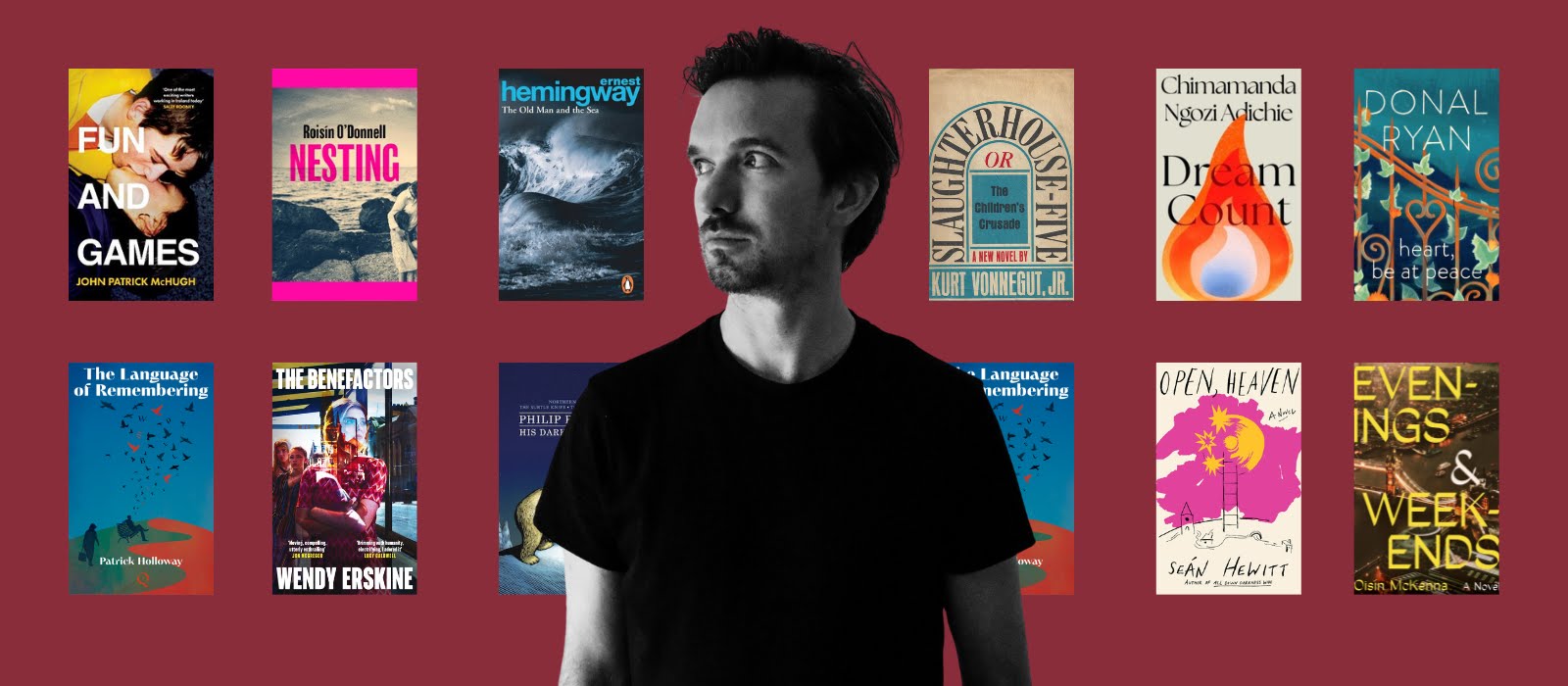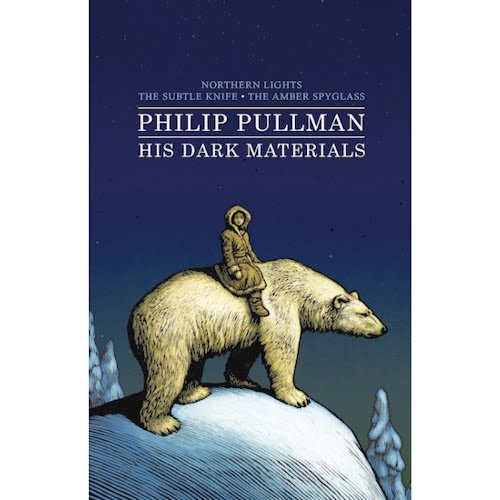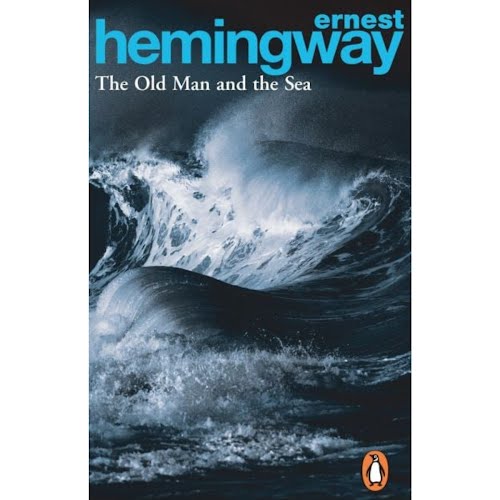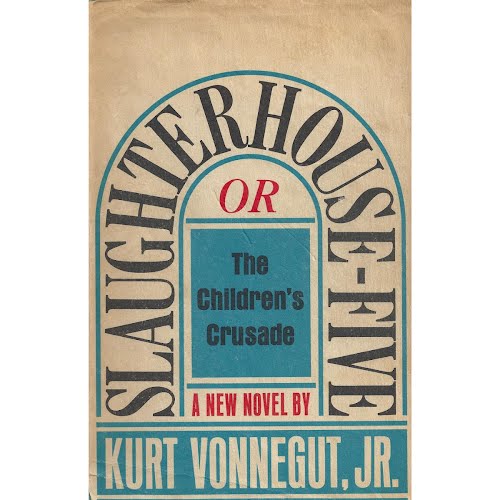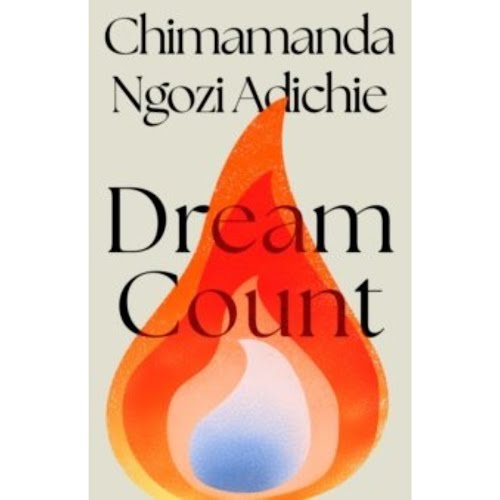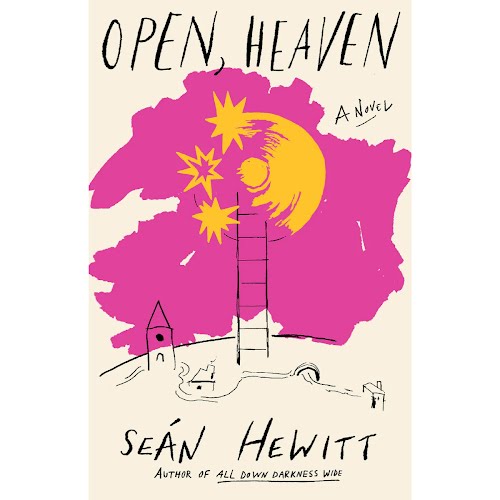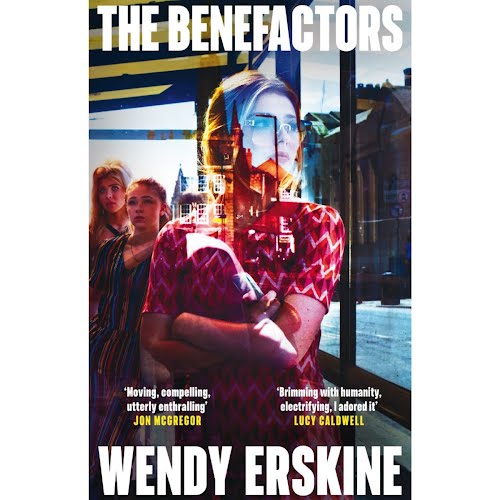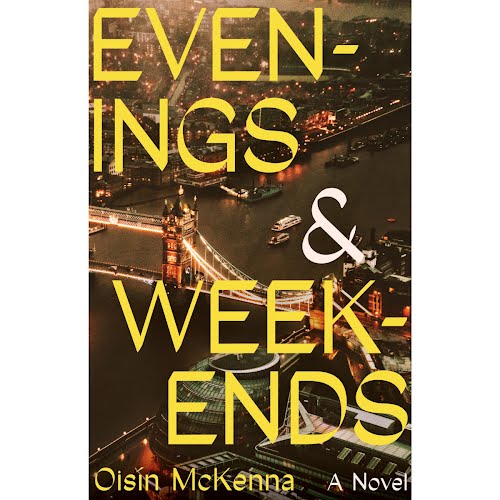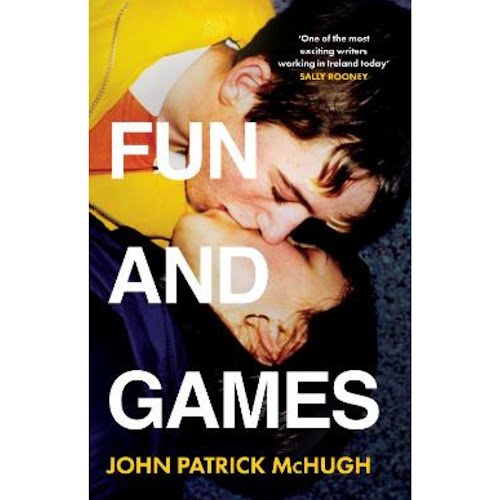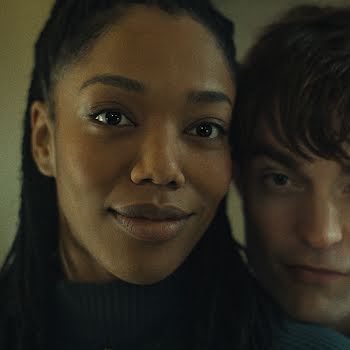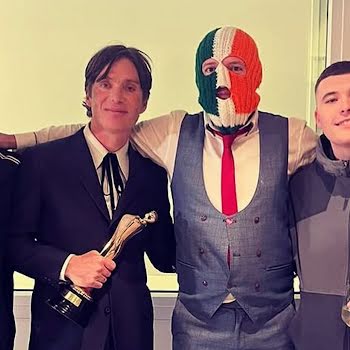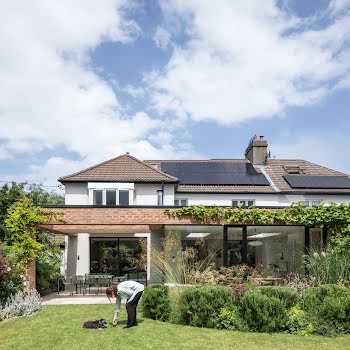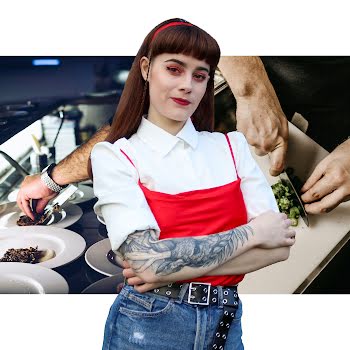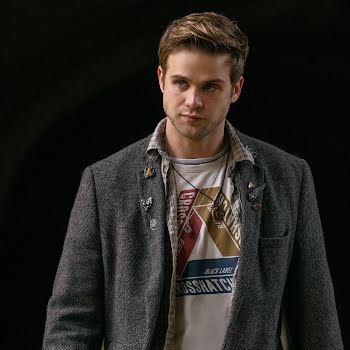Author Patrick Holloway discusses his most beloved literary titles, writing process and the simultaneous fullness and emptiness that comes with finishing a brilliant book.
Patrick Holloway is an award-winning Irish writer of fiction and poetry who completed a Master’s in Creative Writing in Glasgow, before moving to Porto Alegre in Brazil, where he completed his PhD. The Language of Remembering is his debut novel, and is a title that asks how we connect to the people we love and how we move on from the past to find meaning in the present.
Returning from Brazil with his wife and daughter, Oisín is looking to rebuild a life in Ireland and reconnect with his mother, Brigid, who has early onset Alzheimer’s. As her condition deteriorates she starts to speak Irish, the language of her youth, and reflects on her childhood dreams and aspirations.
Mother and son embark on a journey of personal discovery, and as past traumas are exposed they begin to understand what has shaped them and who they really are.

Did you always want to be a writer?
When I was younger, I actually wanted to be an actor, then decided against that because of all the rejection. The irony that I then chose writing is not lost on me. I’ve always loved reading and always wrote poems and journal entries, but only in university did it become something I really pursued. I did a year abroad in North Carolina and did my first fiction and poetry workshops. I was very lucky to have Karen. E. Bender as a teacher, and she really inspired me to take my writing more seriously. I then went on to do a master’s in Glasgow and started getting poems and stories published. It’s very much been an uphill journey to get to this point so I’m enjoying every moment now… until the reviews start coming in.
What inspired you to start writing?
Writing started out for me as a way of understanding myself, what I thought of others, how I saw the world. It was, and at times still is, a therapy of sorts. I’ve always been compelled to tell stories, whether it be spoken or written down, and for a long time the short story was the way I got to do that. It took me a while to have the confidence and the discipline to write a novel.
Tell us about your new book, The Language of Remembering.
I lived in Brazil for nine years and the idea of how we change when speaking another language became a common theme in my writing. I was exploring language and identity a lot, and the idea of language being taken away came to me. I originally wrote a short story about a son learning Irish to connect with his mother who has early onset Alzheimer’s and starts speaking Irish, the language of her youth. Oisín’s voice never left me and while exploring his story, his mum, Brigid’s past came up and she became the second narrator. It is a book in two parts. Brigid’s narrative deals with her uncertain future and the loss of a life she had imagined. She faces the uncertainty of becoming a mother as a teenager in rural Ireland in the ‘70s. Oisín’s narrative is about reconnecting, working through his past to be able to really live in the present. By moving home to Ireland, to care for his mother with early onset Alzheimer’s, he is forced to deal with past traumas. I think this book really explores how the past can haunt us and how language can fail us. I wanted to explore these ideas in a different way.

What do you hope this book instils in the reader?
I hope the characters are relatable, so the reader feels for them, that the reader carries the character’s loss as their own for a little time. That the reader also feels the hope, the sense of reconnection. I’d love for readers to think about the idea of home, how it shapes us, how the past so often conflicts with the present.
What did you learn when writing this book?
How hard writing a novel is, firstly. I also did a lot of research into language and identity, sameness and otherness, and I think by exploring this through Oisín, I discovered a lot about myself.
Tell us about your writing process?
I write when and where I can. I’m not precious about the process at all. I can often write while my children are running around me. I consider myself lucky that when I do have time to write, I’m able to produce. I’m quite a quick writer (probably because I’m so impatient) and I really enjoy those slots of time that I’m completely lost in the story.
Where do you draw inspiration from?
I think I’m very much a character driven writer. I love trying to understand moments and explore the complexities of the simple things in life. It’s so curious to me that we are never really able to express the thoughts we have in the way we want. I’m inspired by that, by trying to connect the inner with the outer. I’m very lucky to have a wonderfully crazy family, so there’s always inspiration there. And my two daughters are constantly giving me material, helping me see the world anew.
What are your top three favourite books of all time, and why?
It’s so hard. And is always changing. I’m cheating because my first book is a trilogy: His Dark Materials by Philip Pullman. It’s the book of my youth, I love coming back to it. The Old Man and the Sea by Ernest Hemingway had a huge impact on me as a young adult. And finally, Kurt Vonnegut’s Slaughterhouse Five.
Who are some of your favourite authors, Irish or otherwise?
Anne Enright and Donal Ryan are without a doubt up there. I’m a big fan of Chimamanda Ngozi Adichie and am very excited about her new novel. I was introduced to Vigdis Hjorth last year and have now read all of her books. Elena Ferrante, Elaine Feeney, Claire Keegan, Haruki Murakami, Cathy Sweeney, Sean Hewitt.
What are some upcoming book releases we should have on our radar?
Nesting by Rosin O’Donnell, which was published in January, and Sean Hewitt’s Open, Heaven, which will be published in April 2025. I am also very much looking forward to Wendy Erskine’s debut novel, and John Patrick McHugh’s Fun and Games.
What book made you want to become a writer?
I’m not sure there is any one book but more the act of reading. I think for me it was more the feeling of reading and finishing a book that made me want to do something similar. That fullness and emptiness when finishing a brilliant book—that you have lived another life, and then are left without it.
What’s one book you would add to the school curriculum?
I just finished Evenings and Weekends by Oisín McKenna and it was totally brilliant. I think it really showed the life and people of today, and I think a lot of school students would feel seen by reading such a book.
What’s the best book you’ve read so far this year?
I’m going to choose my favourite of 2024. Vigdis Hjorth’s Will and Testament was so brilliantly written. The family dynamics were so complex and so well delivered. Also, Heart, Be at Peace by Donal Ryan.
What’s some advice you’ve got for other aspiring writers?
I think just make it as enjoyable as you can. Don’t forget it is fun and all the rest of it—rejections, reviews, all of it—is just noise. The writing is where it’s at. Stick at it while it’s giving you something.
Lastly, what do the acts of reading and writing mean to you?
I’m not a religious person at all so I think reading and writing is as close to a religion as I’ll ever get. There is something hallowed in both reading and writing for me. In reading, it is being gifted something, or something miraculous being unearthed. In writing, it is trying to reach that.
The Language of Remembering by Patrick Holloway (€15.95, Époque Press) is on sale now.


